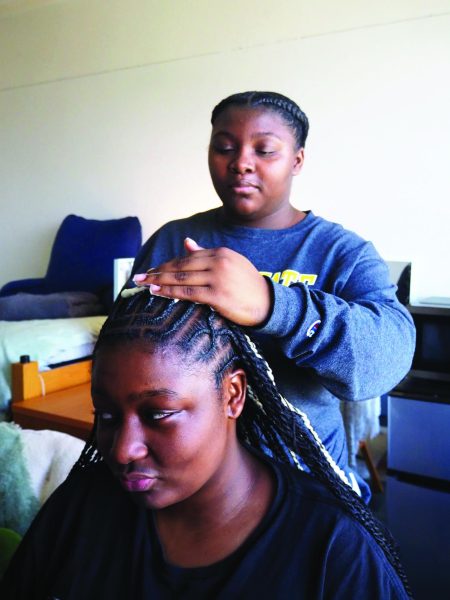Advising concerns WSC students
Administration looks at making changes
November 6, 2019
WSC students are increasingly dissatisfied with the current system for academic advising, so the college is looking to make changes.
Many WSC students, including communications major Brooklynn Grixby, simply look at their advising appointments as the necessary means to get their academic advising flag lifted, so they can register for classes.
“Our current advising system consists of a lot of self-teaching and trying to make your schedule, and then taking it into your advisor for them to clear the hold,” Grixby said.
Grixby said her advisor has helped her figure out how to meet her general education requirements, but after the completion of those classes the meetings were simply to release the hold.
Elijah Herrington, an English major at WSC, said he thinks our current academic advising system is dysfunctional.
Herrington said he thinks the main problem with the current academic advising system is that advisors are too focused on the technical aspects of advising.
“They aren’t able to focus on other things like graduate school or career options after college, so when you stop in for an academic advising appointment, all you get advised on is your classes and nothing ever evolves within the conversation from there,” Herrington said.
Grixby said her advisor has not really helped her to think about what she will do after college, but she would like that because it would show her ways to use her major in different fields in order to get a job.
“Students need to learn how to reach out and use their resources to work out the mechanical aspects of making sure they graduate on time and leave some of the more theoretical or post-graduate advising to the advisors,” Herrington said.
One resource that students could refer to is the undergraduate degree audit, which can be found on Wildcats Online. This document details how many credits the student has overall, how many credits needed to graduate, which classes are left to take within their majors and minors and even the general education requirements that need to be met.
If each student fully understood this resource, it would clear up time within the advising appointment to discuss bigger topics such as the student’s future.
“I also think that there are too many students per advisor, and it’s preposterous for one person to manage the lives, career opportunities or academic profiles of 15, 30 and even 50 students,” Herrington said.
Due to these problems, the college has put together an academic support services and advising task force.
The goal of this task force, according to the Academic Advising Task Force charge, is to, “review and assess Wayne State’s current advising model, and to develop recommendations to improve advising for all student populations (undergraduate, transfer, graduate, and online).”
Specifically, according to the charge, the task force will analyze faculty and staff advising loads and students’ perceptions of advising.
The new advising model would focus primarily on freshman or transfer students, especially those who may still be deciding on a major.








